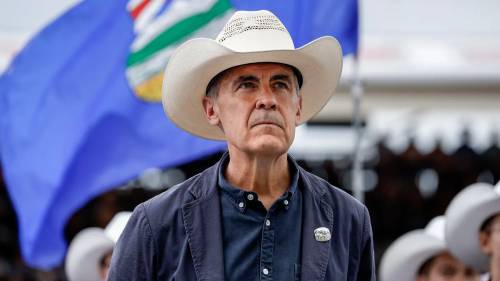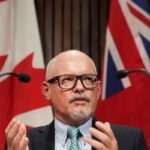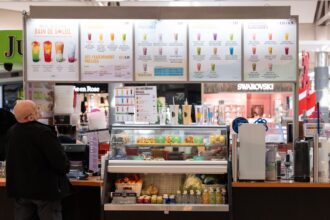The looming specter of Donald Trump’s return to the White House has sent Canadian officials scrambling to develop a robust trade strategy, with former Bank of Canada governor Mark Carney warning that Canada must remain “nimble” in its approach to potential negotiations with the United States.
“Trump operates with multiple objectives simultaneously,” Carney stated during a recent economic forum in Toronto. “What appears to be his primary goal one week may shift dramatically the next, which requires our negotiators to maintain flexibility while protecting Canada’s core economic interests.”
The stakes could not be higher for Canada, with approximately 75% of its exports flowing to the United States, representing nearly $400 billion in annual trade. Trump’s previous administration was marked by contentious renegotiations of NAFTA, resulting in the current USMCA agreement that is scheduled for its first formal review in 2026.
Policy experts at the CO24 Business desk note that Trump’s campaign rhetoric has focused heavily on imposing broad tariffs, potentially as high as 10% on all imports and up to 60% on Chinese goods. Such measures could severely impact Canadian manufacturing and resource sectors that are deeply integrated with U.S. supply chains.
“The uncertainty isn’t just about direct tariffs on Canadian goods,” explains Melanie Thompson, chief economist at RBC Capital Markets. “It’s about how Canadian businesses that form part of complex North American supply chains would be affected if Trump disrupts trade with other nations, particularly China and Mexico.”
Carney, who now serves as vice chair at Brookfield Asset Management, emphasized that Canada’s approach must balance defending its interests while acknowledging the reality of U.S. political dynamics. “We need to understand where we have leverage and where we don’t,” he cautioned. “Some battles are worth fighting, while others may require strategic concessions.”
The Trudeau government has reportedly established a specialized cross-departmental task force to analyze various Trump administration scenarios. Sources within Canada News circles indicate that Deputy Prime Minister Chrystia Freeland, who led NAFTA renegotiations during Trump’s first term, is coordinating preparation efforts.
Complicating matters further are Canada’s own domestic economic challenges, including inflation concerns, housing affordability issues, and a productivity gap with the United States that has widened over the past decade.
“We’re entering potential negotiations from a position of relative economic weakness compared to 2018,” notes Dr. James Wilson, international trade professor at Queen’s University. “Our ability to withstand economic pressure tactics is somewhat diminished.”
Business leaders across Canada are already adjusting their investment strategies. A recent survey by the Canadian Chamber of Commerce found that 63% of companies are reevaluating their U.S. market exposure, with 41% exploring diversification opportunities in European and Asian markets.
“The prudent approach is to hope for trade stability but prepare for significant disruption,” advised Sarah Martinez, CEO of the Canadian Manufacturers & Exporters association. “Companies that develop contingency plans now will be better positioned regardless of the outcome.”
As Canadians observe the U.S. election with growing apprehension, the fundamental question remains: can our trade relationship withstand another period of “America First” policies, or must we fundamentally reimagine our economic future with less dependence on our southern neighbor?
























